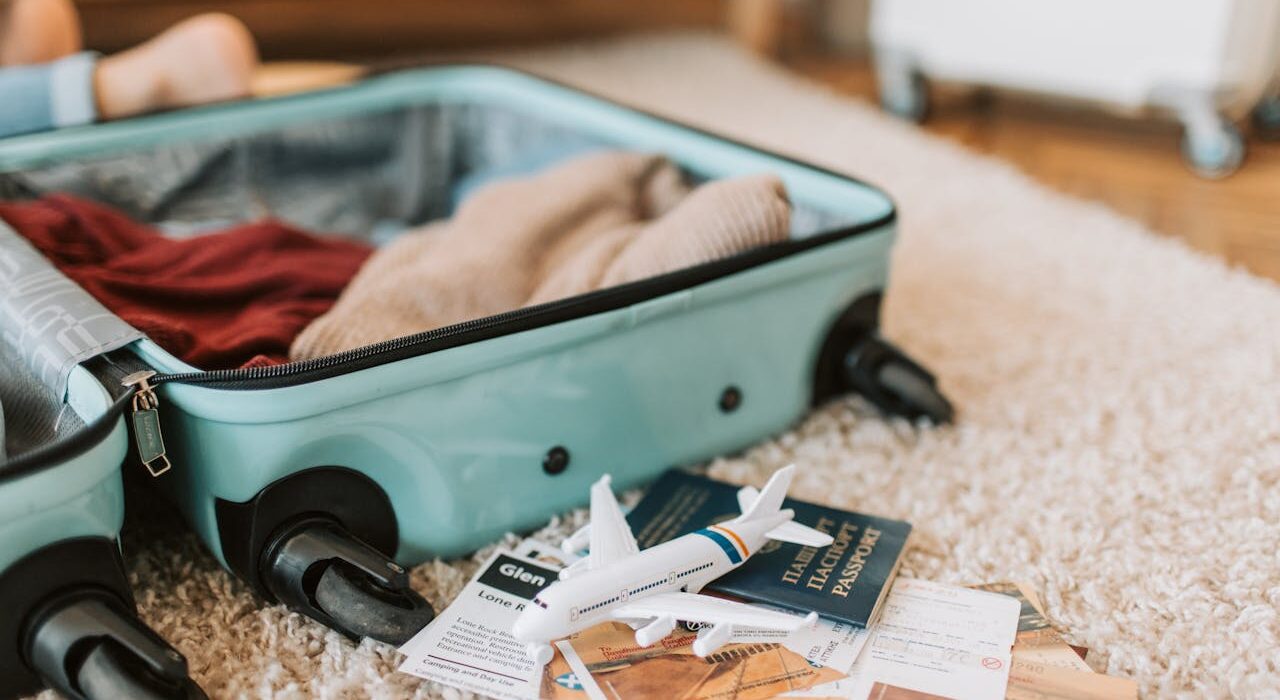Once you’ve landed in France and recovered from jetlag, the real work begins. I’ve already exhausted not one, but two posts on housing. Yet there’s still so much to do to adapt to your new life in France. It can be hard to know where to start. Or what to focus your attention on. So this post consists of 5 (or so) things you need to do to start settling in as a language assistant in France.
Visa Validation
Let’s be real: you either have to come from some money or have financial support or be really good at saving to participate in TAPIF. Paying for your flight, housing deposit and visa out of pocket is no easy feat. Additionally, you’re advised to bring around 1500€-2000€ in savings. Your first full paycheck won’t come until November. Well, you can add 200€ for visa validation to your list of expenses. I’ll be honest: I don’t know why you have to pay again after you’ve entered the country. Especially after you paid for and received a visa in your home country. I don’t make the rules, but I suggest you follow them within your first 3 months in France. Otherwise, your visa will be invalid – so you’ll be in the country illegally and if you leave, you can’t re-enter on that visa.
On this website you’ll be required to provide information on your visa, including the visa remark. As a language assistant, you will receive a temporary worker’s visa (travailleur temporaire). As of 2024, it attracts a fee of 225€. I’ve only ever paid this via debit card, however you can also buy an electronic stamp at a kiosk.
Realistically, 200€ is a lot of money. Especially when you’re living off of savings or a fixed paycheck of 800€ per month. My paranoid mind prefers to pay it as soon as I have a stable WiFi connection. However, you have 3 months to save up for it. And can come and go as you please within those 3 months without validating it. Just save it in your calendar and don’t forget to do it.
OFII Appointment
Once you’ve validated your visa, you’re registered to do a medical visit with the Office français de l’immigration et de l’intégration or OFII. It’s a standard medical exam, including a chest X-ray. Based on what I’ve read in the recent 2024 guide, assistants are now prompted to contact OFII themselves if they aren’t summoned for an appointment. However, that wasn’t mandated during my time as an assistant. New assistants now bear the responsibility of reaching out within 45 days of validation. When OFII does give you a date, you have to go. Even if it’s during school holidays. Your school is required to give you time off if the appointment is during your work hours.
French SIM Card
If you come from a country where you can get reasonable roaming coverage in France and wider Europe, ignore this section. As a Jamaican, I knew Digicel wasn’t going to cut it, so I needed a French phone number. During my first year, I got it through my bank (which is a thing you can do in France). There are also providers like Free, SFR, Orange and Bouygues Telecom. You have to do your research on what fits your budget and the kind of plan you want. It’s also crucial that you get a plan that is ‘sans engagement’. This means that you can end your contract at any time without a penalty. Your TAPIF contract is 7 months, so you don’t want to be tied to a 12-month phone plan.
If it’s your first year, you’ll likely be able to benefit from a discount rate available for the first 12 months. If you only plan to be an assistant for one school year, choose the plan which gives you the best discount for the first year, then leave. However, if you plan to return to France, choose a plan that has a rate you can afford to pay long-term.
Pro Tip: If you plan to return to France, but have to leave the country to renew your visa, switch your phone plan to the cheapest plan they offer (probably for 2-3EUR) and leave some money in your bank account to automatically pay for it. When you’re about to return to France, switch your phone plan back to your normal plan. That way, you’ll already have data and a phone number when you return.
Paperwork with your School Secretary
Nobody likes paperwork, but it’s the cornerstone of French bureaucracy. It’s your school’s job (via their secretary) to help you register with them and into the French system. Among other things, you’ll complete forms for your social security number (so you can access healthcare), and a transportation subsidy (depending on how far away you live, your employer is obliged to pay half of your transportation fees). Be prepared to provide documents such as your birth certificate, banking information (RIB), and the receipt for your transport card.
My personal experience with school secretaries has been seamless, however you may run into some issues. If you’re placed at more than one school, one of them is the main school that handles your paperwork. You may also have to inform them that they are responsible for registering you, and even prompt them to contact the Académie and follow-up. Just remember to be firm but polite, because secretaries run the school.
Open a bank account
In the future, I hope to discuss managing your finances as a language assistant. But that discussion starts with opening a bank account. The best thing that ever happened when I opened mine was that my prof ref came with me, which made everything easier. Ask yours if they’re willing to do the same.
Typically, you need your passport (carte d’identité, but as a foreigner it’s your passport), proof of address (justificatif de domicile) and your arrêté de nomination (which serves as your proof of income and work contract). However, I advise you bring every document you could ever imagine needing to start an account such as your birth certificate and a copy of the ID card of the person you’re staying with and their utility bill. Because I’ve seen instances where one branch tells you to bring a set of documents, then another branch of the same bank tells you something else. And we’re trying to be efficient around the inefficiency of French bureaucracy.
In terms of choosing a bank, I’ve heard good reviews from other assistants about Crédit Agricole. My bank Crédit Mutuel has served me well (barring a few hiccups). You can also ask your prof ref or other teachers which bank to choose, or which banks previous assistants chose. While you can get an account through the post office, I have yet to hear a good review about Banque Postale. You can also research whether these banks have youth accounts (for young people below 25 or 28), as they offer benefits and lower fees. Virtual banks such as Hello Bank and Nickel are also an option, though I prefer the comfort of a brick and mortar business with a human conseiller bancaire.
I’m also going to pass on a tip, which may not be relevant in 2024. Ask your bank for copies of your RIB (a document with your banking information for bank transfers and auto-payments). Once you install your banking app and sign-up for their online platform , you’ll have access to a PDF of it, or can easily copy and paste it in a message. But it may be useful to have physical copies for your first few transactions while you’re settling in.
Bonus: Meet your teachers, coworkers and students
Generally it’s polite to become acquainted with the people you’re working with and will see almost everyday for 7 months. You’ll be assigned keys to classrooms and maybe a lunch card. But as best as you can, try to integrate with your coworkers and learn your away around the school and its staff. Even if teaching isn’t your passion, I implore you to try and engage with the job. Speak with your teachers and coordinate your lessons with theirs. Depending on their age, speak with your students about their interests and how you can bring that into the classroom. I don’t have the word count to explain how this will pay off by the end of your contract, but trust me it will.
If you’re a former language assistant, do you have any tips on settling in France? Feel free to drop them in the comments section, or leave a comment on social media. And if you want to more information on starting a life in France, subscribe to the blog.




